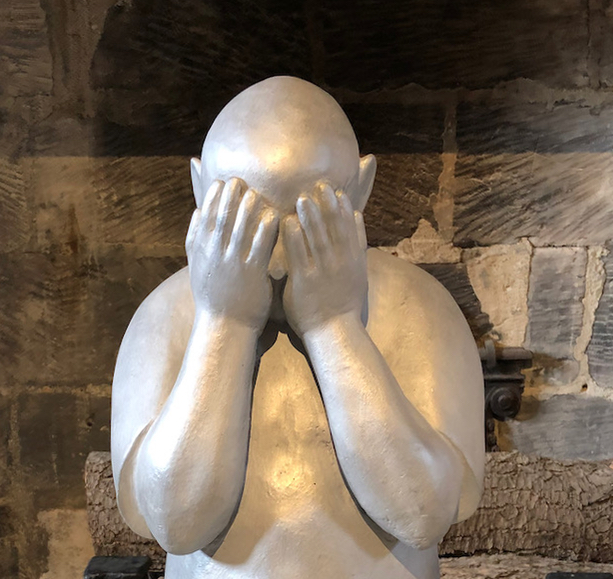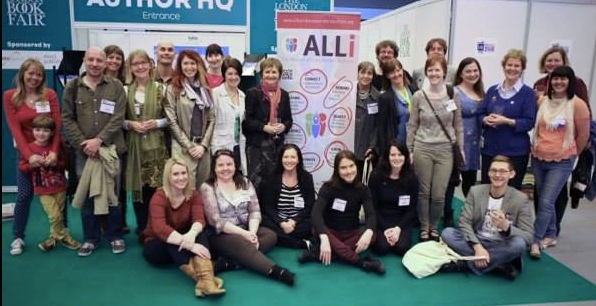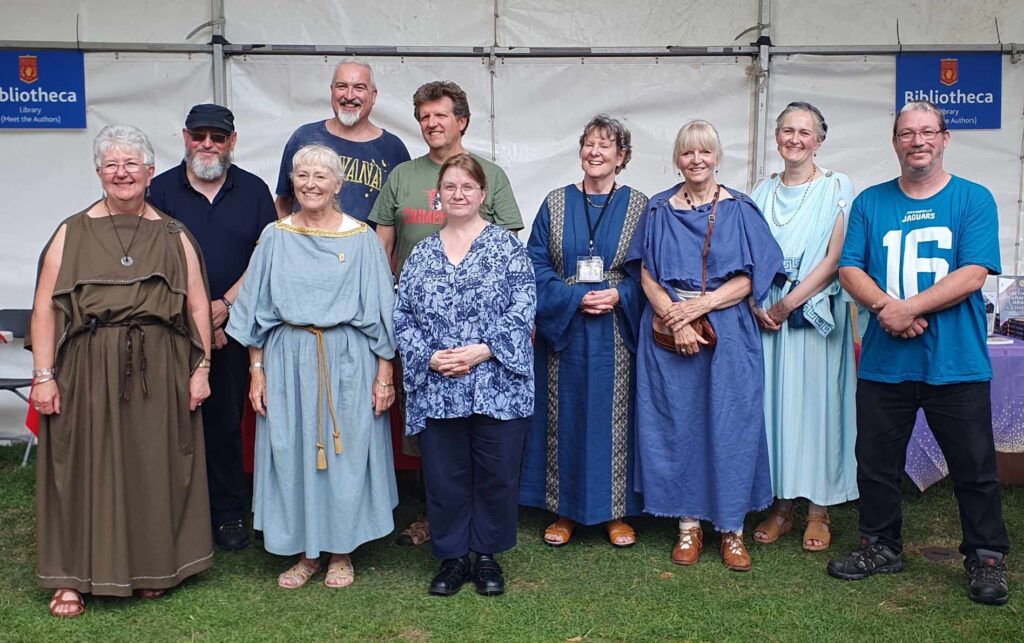Sadly, there have been reports on social media and in the national press about a debut writer running a review campaign against her fellow writers. Using a number of accounts she created under different names, she’s been marking down all her perceived “competition” with 1-star negative reviews on a well known readers’ website. She also orchestrated artificial 5-star support for her own book.
This is BAD FORM. As a result, she’s lost her contract with a very prominent publishing house and gained (writing) worldwide notoriety. You have to ask where were her agent, her advisors, her friends? (Note: I understand her agent has resigned from representing her.)
No writer can succeed by themselves in the competitive environment of the book world. Perhaps that’s a surprise, but that’s how it is. And pi**ing on your fellow writers is not the way to behave.
The isolated writer?
Sitting by yourself, in a spare bedroom, study, or even at the dining room table, and tapping away on a keyboard can be a lonely business. People wonder why you don’t go outdoors on a sunny day or wander into the village for a leisurely drink at the local bar or browse around the market. But you don’t want to see, let alone talk, to other people. You are absorbed in your writing world.
Of course, you need to get the word count or the hours in on your latest work in progress – that’s understood. But why do you need to interact with other people? Ninety per cent of people probably aren’t interested in writing or in your latest work, you mutter to yourself. You’ve often watched their eyes glaze over when you reply honestly to the enquiry about how your writing is going. But ten per cent are interested and you need to find them.
Why do you need others?
- Your mental health – you’re a human being who needs contact with like-minded souls
- To learn from others’ experiences – competitions, agents, the ever-increasing number of routes to publication, especially self/indie publishing, conferences, the best courses and advisors, writing and book events
- To obtain critiques from other writers – not Auntie Maud who taught English or your mate at work who has a way with words
- To learn new writing techniques and approaches to work – not just how to sling words together, but about characterisation, the senses, novel or poetry structure, research
- To network to make those vital contacts to get your book published and to learn marketing skills from others to publicise your work yourself
- Not to bore your nearest and dearest, but to have fun with like-minded people
So where are these fellow-writers?
Starting locally, try to find a writing group. Look in the local press, the library and online. Ask anybody who has a faint connection with writing. Ask at your local book club – some of them may be writers. Have a chat to the organiser and go and try out such a group. The main requirements are a supportive open atmosphere, honesty and a lack of ego-tripping.
Next are writing associations, usually specific to a genre of writing, such as the Crime Writers’ Association, the Romantic Novelists’ Association or the Historical Novel Society. They have events, regional groups, newsletters, Facebook pages, websites, blogs – you name it! If you are thinking of self-publishing nothing beats the camaraderie of the Alliance of Independent Authors (ALLi). Even remotely, you can benefit enormously.
Online critique groups can be a little daunting at first, but as you grow a writer’s thick skin, you’re likely to find it helpful and inspiring as well as immensely valuable. But you’ll need to plunge in!
Going to conferences can be a real boost to your writing. There are hundreds of literary festivals each year in the UK and abroad, including practical ones for writers such as the Jericho Writers events or the International Dublin Writers’ Festival where you can meet fellow writers, agents and publishers.
Moreover, you may hook up with another writer you can develop into a writing buddy, or more formally, critique partner. With Skype, Zoom and email it’s no problem to discuss and work on writing together at distance. The writing buddy must be someone you trust, so it may take a little while to get to know them. Mine has kept me sane and grounded over the years so they’re worth their weight in gold!
As in life, as a writer you need other people – they are NOT your competitors.
As in life, if you behave like an arse in a community, you’ll get thrown out.
As in life, friendship and collaboration lead to a hell of a better result than floundering around alone.
Alison Morton is the author of Roma Nova thrillers – INCEPTIO, CARINA (novella), PERFIDITAS, SUCCESSIO, AURELIA, NEXUS (novella), INSURRECTIO and RETALIO, and ROMA NOVA EXTRA, a collection of short stories. Audiobooks are available for four of the series. Double Identity, a contemporary conspiracy, starts a new series of thrillers. JULIA PRIMA, Roma Nova story set in the late 4th century, starts the Foundation stories. The sequel, EXSILIUM, will be out in February 2024.
Find out more about Roma Nova, its origins, stories and heroines and taste world the latest contemporary thriller Double Identity… Download ‘Welcome to Alison Morton’s Thriller Worlds’, a FREE eBook, as a thank you gift when you sign up to Alison’s monthly email update. You’ll also be among the first to know about news and book progress before everybody else, and take part in giveaways.
















I think all we writers have similar strong views about the review-bomber you refer to, Alison.
Elegantly handled!
Thank you! With all the negativity, I thought it important to stress the positive gains if you work with others in our profession.
A new writer (then!) of historical fiction contacted me by email years ago to express horror and apologies that he/she had written a novel on a similar subject to one of mine. The author hadn’t known about my novel and didn’t want me to think there was any deliberate rivalry. I replied to the contrary: the more novels there are on certain historical subjects can only be of benefit to us all! Readers of fiction are eager to find more novels, are always looking for new writers, new novels on their favourite topics – there’s plenty of room for us all. Switch to an analogy of TV shows we don’t just watch ONE TV cop show we watch them all from Columbo to Morse. We don’t watch just one I’m A Celebrity we watch all them (if that’s the thing you like!) So this rather silly writer has most definitely scored a very stupid own goal, and has, quite rightly, been sent off the pitch with a huge red card!
That old adage ‘you scratch my back, I’ll scratch yours’ is most definitely true where the hard task of marketing is concerned! Nearly all of us Indie writers would be sunk without the generous – and I’d even go as far as saying devoted – support of our fellow writers. The opposite is also true: deliberately set out to sabotage a fellow writer and you’ll be the one who disappears pretty pronto!
Goodness, I don’t know what I’d do without my writer friends – for friendship as well as ‘wordsmithing’ (and I have quite a few treasured friends after over 30 years in ‘the business’). Thank you to you all!
Agreed. The number of novels out there about Julius Caesar, Mark Anthony, Augustus, etc. is a great example. Or the Tudors(!) The author of each novel gives a different interpretation of the story in their own style and maintains interest in that period. I’ve read loads set in the same emperor’s reign!
Doing joint blog tours, taking part as a group at a literary or period festival, producing collections together such as our recent Historical Stories of Exile are wonderful examples of authors behaving collegiately. May it continue!
I actually have no idea who the review-bomber is, but I have seen writers’ distress at the results of it. I’m almost completely unknown, but I love being part of the writing community. It’s something I had no idea about when I started producing books, (in fact, I admit, I had little idea about the whole business of writing and publishing) but becoming part of that big ‘writing wheel’ is a great joy to me.
An excellent article, Alison. Thank you
Very pleased you enjoyed the article, Jeanette. When I started in 2010, I knew nothing about the writing or book world except as a reader. I read other blogs, joined groups, went to events, followed courses and listened. It sounds as if that’s what you’re also doing. All good luck with your writing!
An excellent article, Alison. You’ve drawn on your own experience and expressed what so many of us feel. I’m one of the many fortunate enough to have author friends who are supportive and always ready to give advice or help. I enjoy mentoring other writers and seeing them achieving what they’re striving for. And I love congratulating my friends, as they congratulate me.
I can’t help feeling pity for the author who was misguided enough to act in such a way. I hope she can find her way out of the situation.
Thanks, Sandra. You’re very kind to the writer who was so daft to act like this. She obviously knew nothing about the book world or how authors act. I count my writing friends and colleagues as treasures!